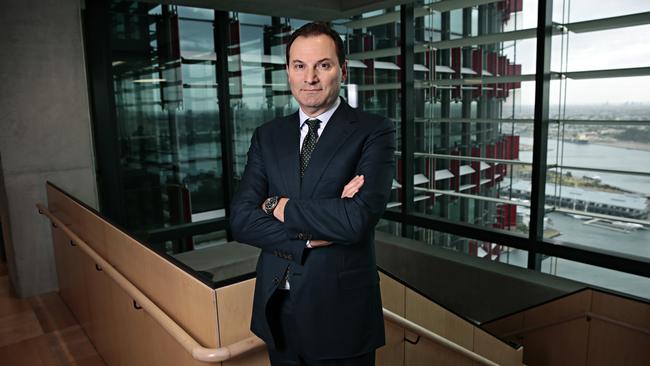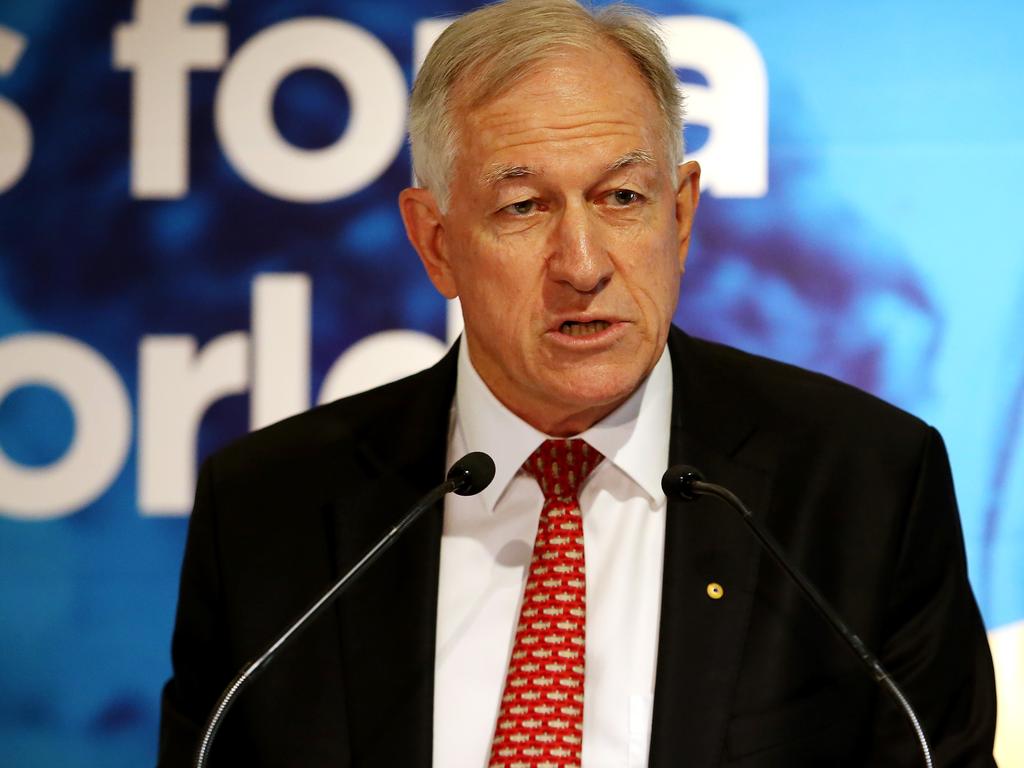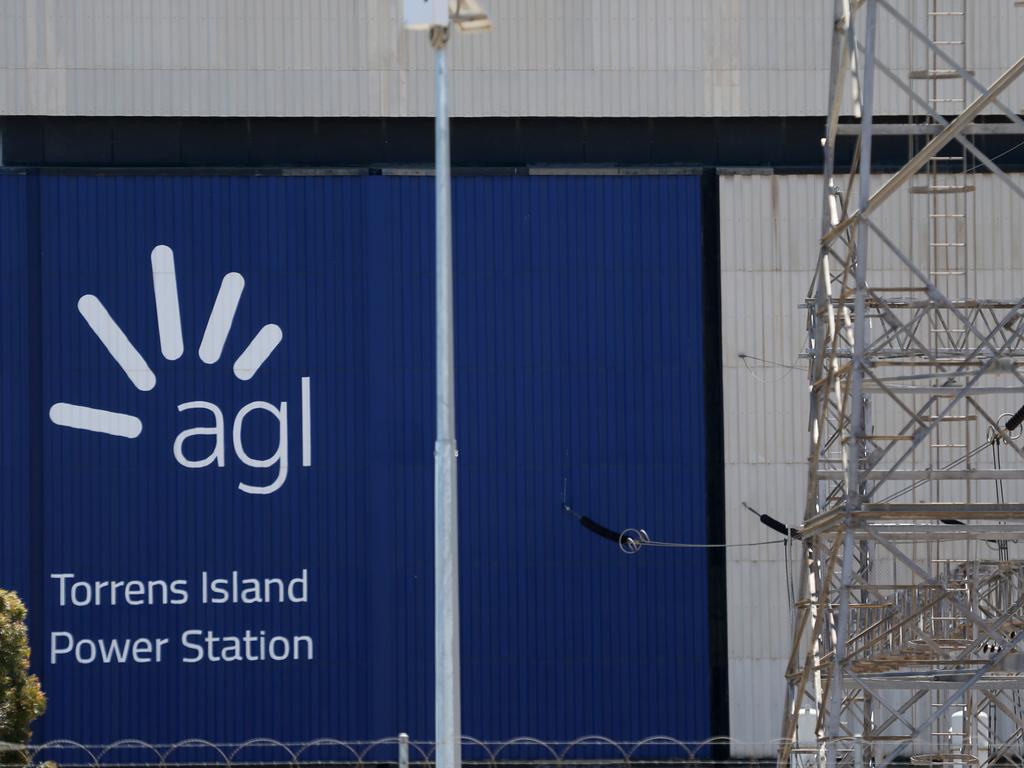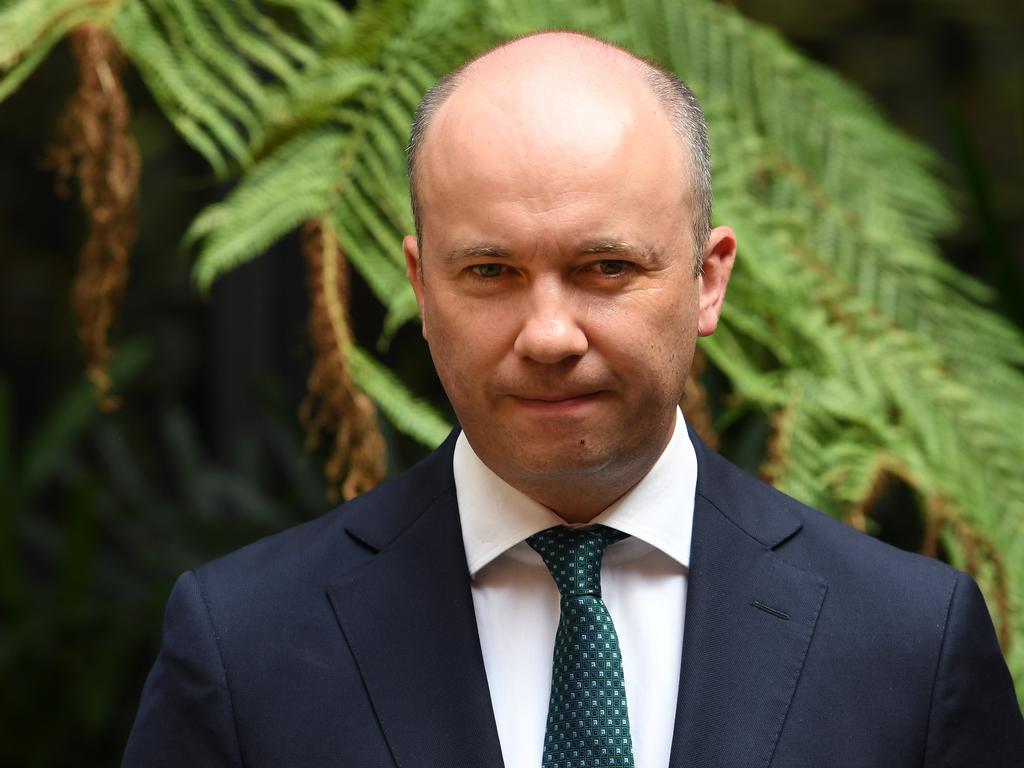Intervention will blunt investment returns, says Origin CEO Frank Calabria
Origin Energy expects returns on new power generation to take a hit from government intervention and anticipates rock-bottom electricity prices to recover.

Origin Energy expects returns on new power generation will take a hit from government intervention and anticipates rock-bottom electricity prices will recover, describing current levels as unsustainable.
The power giant, one of Australia’s big three retail and generation operators, is among companies battling government measures to underwrite new electricity generation, with Victoria, NSW and the Commonwealth intervening to ensure enough generation capacity gets built as coal plants are retired throughout this decade.
“One of the reasons a lot of the firming generation hasn’t been invested in is that it’s very difficult with government intervention and other forces to then justify a business case to invest in a multi-decade asset like a gas peaker,” Origin chief executive Frank Calabria said on a briefing with fund manager Allan Gray.
“What I see now is there will be more evolution of the market including announcements from state governments. To underpin those investments you would be taking a lower return but a lower risk. And the reason for that is they are underwriting contracts for a long period of time.”
Average electricity spot prices have halved from a year ago to between $40 to $45 per MwH in most states as a flood of cheap renewables lowered daytime prices, along with cheaper gas and coal and softer demand amid COVID-19.
Some investors have questioned whether the big fall in wholesale prices is sustainable given predictions baseload coal plants may need to further cut production to survive, tightening the market and leading to prices rising again.
The Origin chief said prices will invariably rise.
“I think there will need to be increasingly stronger signals for the replacement of generation now as coal exits the market. I think that’s happened much faster than people anticipated in terms of where wholesale prices are and I don’t see them as sustainable as you are going to get a supply response.”
Mr Calabria described the market and regulatory environment as “unstable” and said no one could suggest Origin was making excessive profits given the price headwinds hitting the sector.
“It is an unstable one,” Mr Calabria said in reference to the regulatory environment. “Clearly I think you can look at Origin and the sector and not point to excessive profits. Nevertheless, the high prices saw governments step in rather than allow supply to play out.
“The key change we will see now – and I think you’re seeing evidence through say the NSW policy last year – is they are not really going to I believe rely entirely on price market signals to stimulate investment.”
Allan Gray, a major Origin shareholder, said in February there were questions about whether Origin and rival AGL Energy would commit to new generation given low wholesale prices.
Competitor EnergyAustralia delayed a final investment decision on its planned $400m Tallawarra gas plant in NSW amid heightened uncertainty over the threat of state and national government interventions in the energy sector. AGL paused its Newcastle gas plant decision and is reviewing a giant battery investment at Liddell.
Certainly, intervention has also picked up pace in the last few months.
The Andrews government has been under the spotlight after inking a secret financial deal to keep EnergyAustralia’s Yallourn coal plant running through to 2028.
Big energy producers and users have also raised fears over a plan by the NSW government to underwrite investment in renewable and storage generation, saying the move would distort market signals and detract from a national approach already underway.
At a federal level Canberra has given companies until April to commit building 1000MW of new power capacity to ensure there was a like-for-like replacement for AGL’s Liddell coal plant, which is due to retire in the summer of 2022-23.
“You can see already there appears to be discussions between Yallourn and the Victorian government over how do they manage that duration. But I do think you’re going to increasingly be in a world where state governments are going to have to manage the exit of coal and I think there will need to be evolution in the market rules in order for them to stimulate new investment.”
Energy tsar Kerry Schott, chair of the government’s Energy Security Board, has suggested adding a new price mechanism reflecting the important reliability role provided by power stations through a “capacity market” could help spur investment before coal plants retire.
Coal, which currently provides 70 per cent of electricity, will contribute less than a third of supply by 2040 and could be forced out earlier than planned retirement dates, as competition from renewables and carbon constraints render plants uneconomic, official forecasts show.






To join the conversation, please log in. Don't have an account? Register
Join the conversation, you are commenting as Logout